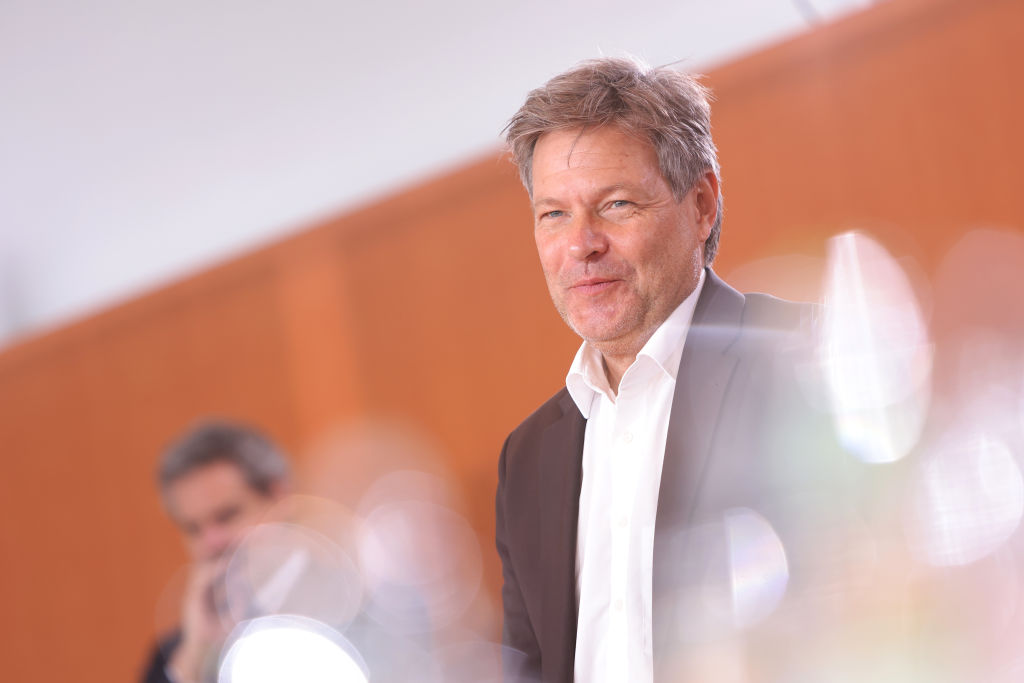German State elections in Saxony and Thuringia saw the hard-right Alternative for Germany (AfD) party make big gains while anti-establishment firebrand Sahra Wagenknecht’s new party (BSW) also performed well.
Parties from the national ‘traffic-light’ coalition, Socialists, Greens and Liberals, all had abysmal results.
In Thuringia, the Greens and Liberals lost all their seats and no longer have a representative. The Socialists are now the smallest party, with only six seats.
The loss of all their seats brought Madeleine Henfling, the local Green Party president, to tears.
Thüringens grüne Spitzenkandidatin Madeleine Henfling kämpft nach Bekanntgabe des Ergebnisses (~4%, also nicht mehr im Landtag) mit den Tränen. pic.twitter.com/WQvMHvhFdY
— Serafin Reiber (@Schurnalischt) September 1, 2024
In Saxony, the Greens lost half of their seats. Socialists, who were already a minor force, lost one.
German Chancellor Scholz, of the Socialist Party, called the election results “bitter”.
Federal Minister of Finance and Liberal Party (FDP) chairman Christian Lindner was dismayed by his party’s poor performance: “The results in Saxony and Thuringia hurt,” Lindner said on X. Hi insisted that no one should believe the party was giving up its fight for liberal values. For all parties “of the democratic centre, there is a lot to think about”, he added.
Björn Höcke, who was accused of having Nazi sympathies by the establishment, saw his AfD party go from 23.4 per cent of the vote in 2019 to 32.8 per cent.
AfD did particularly well among young voters.
Höcke said it was a “historic victory”.
“We are ready to take government responsibility,” he said.
AfD co-leader Tino Chrupalla said he saw a “clear voter mandate” for the AfD’s participation in government after the State elections. The will of the voters must be “respected,” Chrupalla said on the radio station WDR 5. His party was “ready to talk,” he assured listeners. “We will talk to everyone who means well for Thuringia or Saxony.
“If you want to engage in credible politics and take into account the wishes of voters, there will be no politics without the AfD,” he said.
Mit 33,5 % stärkste Kraft in Thüringen, 31,5 % in Sachsen: Laut erster Prognose ein riesiger Erfolg für unsere #AfD! Herzlichen Dank an alle Wähler & Wahlkämpfer! pic.twitter.com/51V5M4kaLK
— AfD (@AfD) September 1, 2024
His party is now the largest by a clear margin, with 10 per cent more votes than first runner-up Mario Voight and his Christian Democratic Party (CDU).
The CDU had decent results in both State elections. It gained votes generally and in Saxony, it came top, slightly ahead of the AfD.
Third in both State elections was the brand-new BSW party. The populist, anti-establishment left-wingers scored 11.8 per cent in Saxony and 15.8 per cent in Thuringia.
Most of its gains seemed to be at the expense of Die Linke, the hard-left party where Wagenknecht and most of her allies hail from originally. In both states, Die Linkse lost more than half of its seats.
In Thuringia it fell from 31 per cent in 2019 to just 13.1 per cent of the vote.
Despite some controversial stances, such as their wish to curb mass migration and criticism on the war in Ukraine, together with hard-left economic convictions, they are seen as a potential partner for the CDU to work with, unlike AfD, which is labelled far-right and extremists by all the other political parties.
“We very much hope that we can eventually get a good government with the CDU — probably also with the [center-left] SPD,” Wagenknecht told Germany’s state broadcaster ARD.
Politicians from the Christian Democratic Union claim the future leadership of the two states but expect the formation of a new government to be difficult.
In Thuringia, the AfD has grown so big that it now holds a blocking minority, allowing it to effectively obstruct any legislation requiring a two-thirds majority for approval.
Constitutional judges and the heads of the State audit offices are elected with a two-thirds majority of all parliamentarians. Certain posts could therefore not be filled without AfD approval.
It was unclear if the same held true in Saxony, where the AfD carries a little less weight. Welt reported on September 2 that there might have been a miscalculation in the new distribution of seats in the State parliament. AfD might lose a seat based on a correction.
The results of September 2 appear certain to put pressure on Scholz to be harsher on immigration and to rekindle the debate over assistance to Ukraine, two themes that dominated campaigning, with just a year to go before a national election in the largest economy in Europe.
Turnout was around 74 per cent in both States, well above expectations.
In three weeks, elections will be held in the State of Brandenburg. There, too, the AfD has a chance of becoming the largest force.





